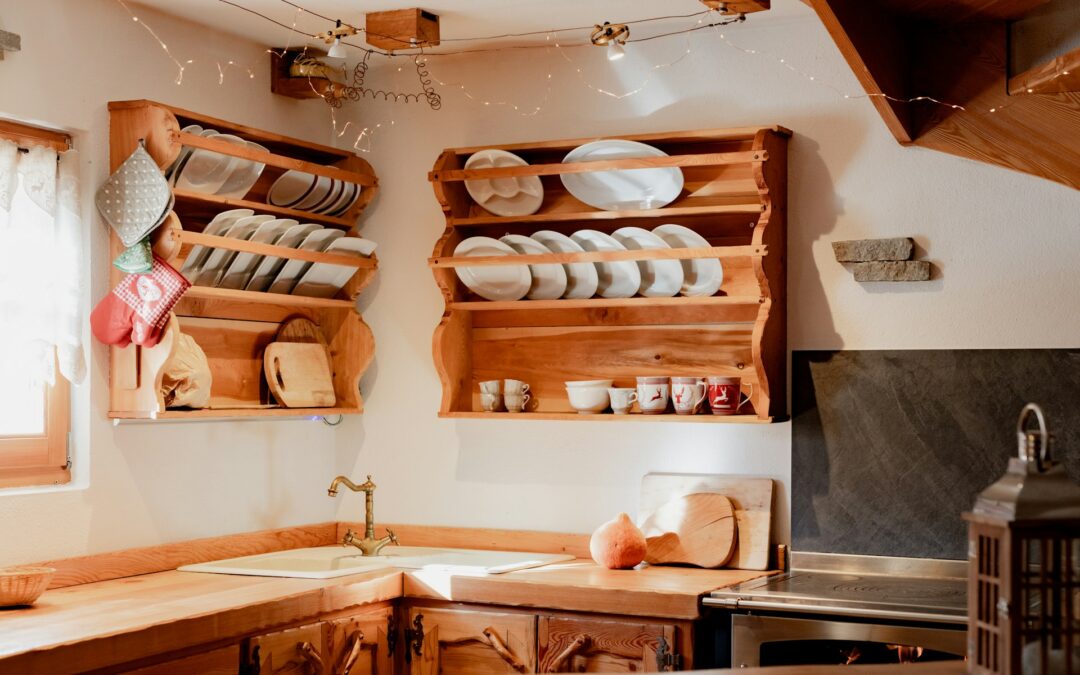A smooth-running kitchen is a centerpiece of a happy home, and at the heart of this efficiency is your garburator. Often overlooked, these handy kitchen gadgets play a critical role in disposing of food waste, ensuring a cleaner environment and minimizing unwanted odours. Keeping your garburator in top shape not only aids in maintaining a pleasant kitchen atmosphere but also prevents potential plumbing issues that could disrupt your daily routine.
Regular maintenance is key to avoiding typical garburator problems. Simple habits like running cold water during use and being mindful of what you put down the drain can make all the difference. With a few straightforward care tips, you can ensure that your garburator not only runs efficiently but also lasts longer, saving you both time and trouble in the long run.
Understanding Your Garburator
A garburator, or garbage disposal unit, is a kitchen appliance designed to shred food waste into small pieces that can easily pass through plumbing. Invented to simplify waste management in homes, it prevents food scraps from clogging up kitchen sinks and keeps kitchens cleaner. Think of it like a personal food waste processor, quietly working under your sink to grind away remains that would otherwise end up in your bin.
Having a garburator in your kitchen brings many benefits. Not only does it make cleaning up after meals quicker, but it also contributes to a more eco-friendly lifestyle by reducing the amount of waste sent to landfills. Plus, it helps cut down on the number of rubbish bags you haul to the curb each week. Imagine the convenience of rinsing food scraps straight down the sink without the worry of clogs. Understanding the garburator’s role and functionality is the first step in appreciating its worth and ensuring it continues to perform effectively.
Daily Maintenance Tips for Your Garburator
Keeping your garburator running smoothly doesn’t require a vast amount of effort. With just a few simple daily care practices, you can significantly enhance its performance and extend its lifespan.
– Run Cold Water: Always run a steady stream of cold water down the drain when using your garburator. Cold water helps solidify any fats or grease, allowing the blades to chop up waste before it sticks to your plumbing.
– Avoid Certain Foods: Steer clear of grinding fibrous foods, such as celery and corn husks, as these can wrap around the blades and cause jams. Starchy items, like rice and pasta, can expand with water and result in blockages.
– Limit the Amount: Even though garburators can handle food waste, it’s best to feed scraps slowly rather than all at once, allowing the disposal unit to work efficiently without getting overwhelmed.
– Regular Cleaning: Freshen up your garburator periodically by grinding small pieces of lemon or orange peel. This naturally cleanses the system and combats any lingering smells.
By incorporating these easy tips into your routine, you reduce the risk of unnecessary repairs and ensure your garburator operates at its best. These habits not only help maintain the unit but also keep your kitchen smelling fresh and inviting.
Common Garburator Issues and How to Avoid Them
Many kitchen troubles stem from garburator issues. It’s not uncommon to experience clogs, jams, or unpleasant odours, especially if the unit isn’t maintained properly. Understanding these problems and how to prevent them can save you from unnecessary stress.
Clogs often result when inappropriate items are put down the drain. Bones, coffee grounds, and large chunks of food can lead to stubborn blockages. To avoid this, always scrape as much solid waste as possible into a compost bin or trash before rinsing your dishes. For jams, fibrous vegetables like celery and asparagus are common culprits. These can twist and tangle around the blades, causing the unit to stop working. Regular checks and careful disposal habits can help mitigate this risk.
Foul odours coming from the garburator usually indicate trapped food particles. A quick solution is to grind small lemon peels. Their natural oils and scent help eliminate odours, leaving the kitchen smelling fresh. By keeping these tips in mind, you can steer clear of these frequent issues and ensure smooth operation.
When to Call Pipes Plumbing for Maintenance or Repairs
Sometimes, despite your best efforts, your garburator may require professional attention. Recognizing early warning signs can prevent minor issues from becoming major headaches.
– Strange Noises: If your garburator suddenly makes unusual grinding or humming sounds, it could signal a jam or a part that needs replacement.
– Poor Performance: Sluggish grinding or water draining too slowly might indicate a deeper issue in the plumbing.
– Persistent Odours: Lingering smells even after a thorough cleaning suggest that old food residue might be stuck beyond your reach.
In cases where these issues persist, it’s best not to attempt fixes that might aggravate the problem. Expert help ensures comprehensive solutions, preventing further damage to your kitchen’s plumbing.
Keeping Your Garburator Running Smoothly All Year Round
Maintaining a hassle-free kitchen involves understanding and caring for your appliances, especially the garburator. Regular maintenance not only ensures smooth operation but extends the unit’s lifespan. Familiar routines such as avoiding disposing of fibrous foods and practicing safe waste disposal methods help build resilience against common issues.
Ensure your kitchen remains a hub of efficiency and cleanliness by trusting the experts at Pipes Plumbing. Our seasoned team provides top-notch plumbing solutions to keep your garburator in peak condition and free of blockages. With our help, enjoy worry-free kitchen operations and extend the lifespan of your essential appliances. Reach out to us today for a professional assessment and experience the difference in your Ottawa home.

